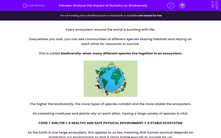Every ecosystem around the world is bursting with life.
Everywhere you look, you can see communities of different species sharing habitats and relying on each other for resources to survive.
This is called biodiversity: when many different species live together in an ecosystem.
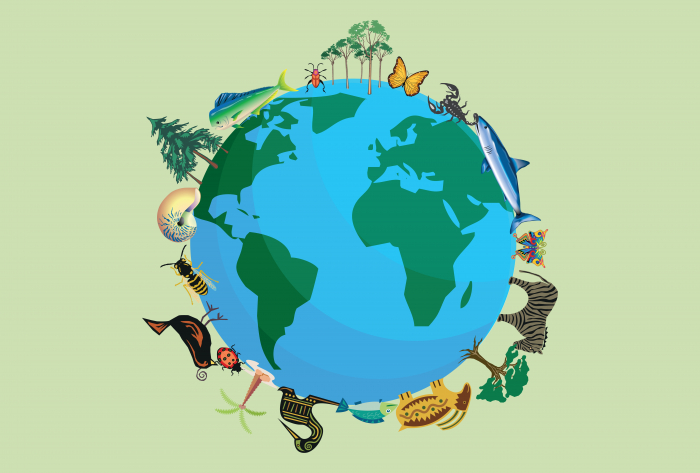
The higher the biodiversity, the more types of species cohabit and the more stable the ecosystem.
As coexisting creatures and plants rely on each other, having a large variety of species is vital.
FOOD + SHELTER + A HEALTHY AND SAFE PHYSICAL ENVIRONMENT = A STABLE ECOSYSTEM
As the Earth is one large ecosystem, this applies to us too, meaning that human survival depends on protecting our environment so that it stays stable enough to provide for us!
So let’s put all these pieces together:
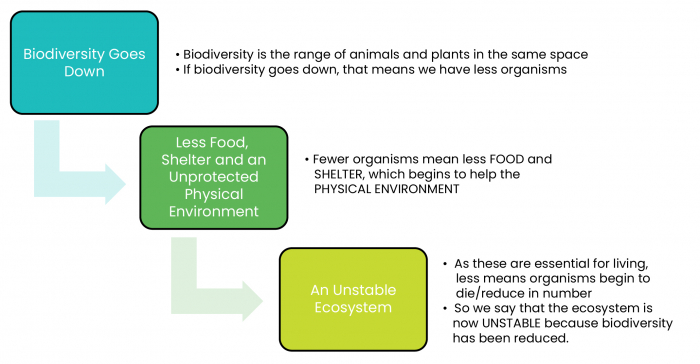
The smallest change to one creature can affect all the other creatures around them, like in a food chain, so preserving nature should be a key responsibility for humans, especially as a lot of damage is our fault.
While environmental awareness is increasing, humans have already damaged the world in three major ways:
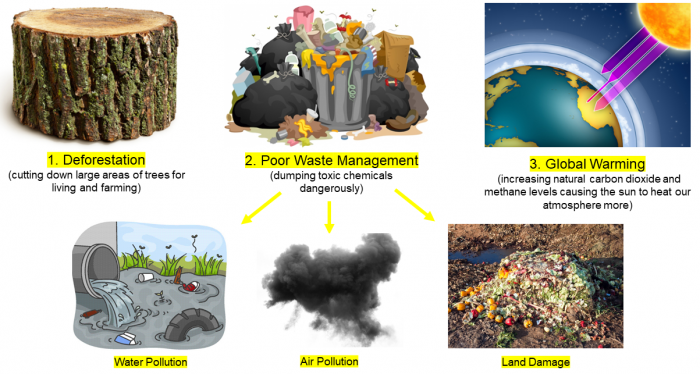
Deforestation provides land for farming and housing, but fewer trees mean fewer habitats and less carbon dioxide gas being absorbed from the atmosphere, destabilising the planet.
The rising human population and higher standards of living mean more waste, creating toxic pollution that reduces biodiversity, and leaves the remaining species with less food and fewer living resources to choose from.
Sewage and fertilisers have polluted our water, toxic gases and smoke are causing air pollution, and landfills are damaging land, along with toxic chemicals - basically, humans are messy!
And the one we’re all feeling - global warming! More carbon dioxide and methane in the atmosphere is heating the planet through the greenhouse effect. The hotter the planet gets, the more biodiversity suffers - just think about the polar bears!
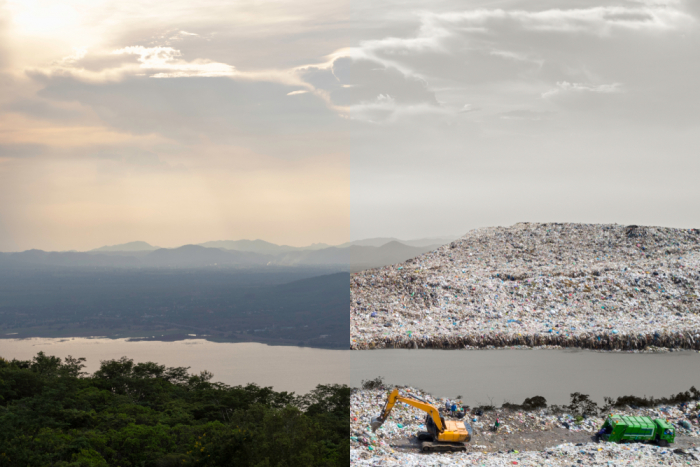
We are getting better at helping the planet, but tackling reduced biodiversity locally and globally is a challenge.
The financial burden of new programs and the risk of mass unemployment from terminating eco-unfriendly jobs are putting a huge strain on productive change.
Also, as the population grows, more housing is needed, but the cost of development means more natural habitats have to be destroyed for our sake, so whose home is worth more: ours or those of the other species also sharing this planet?
A great way to remember all this is in the form of an equation:
COSTS of initiatives + UNEMPLOYMENT + DEVELOPMENTS = BARRIERS TO CHANGE

But despite the controversy, some measures are seeing great success.
Ecotourism aims to minimise the impact of humans on natural habitats as a sustainable concept, making sure that any new building work benefits the locals as well as tourists.
It also makes sure that local communities have a say in the management of their environment and how their way of life might be impacted by tourism. This helps to minimise exploitation.
Now it's time for the questions!

